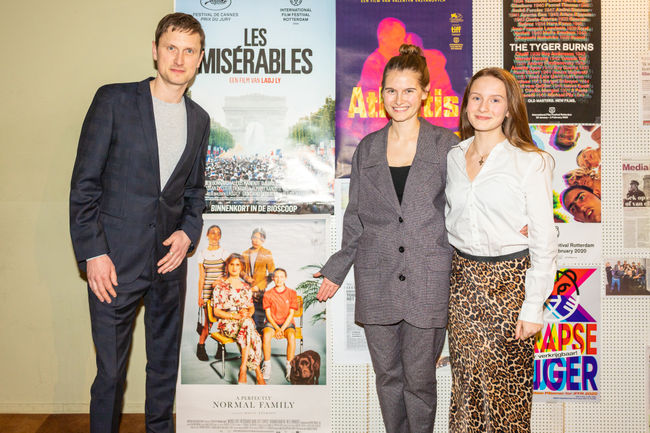Juliano Dornelles over Bacurau
28 January 2020
Juliano Dornelles on Bacurau
While Bacurau seemingly starts as an ethno-social drama, it ends in a big splatter-fest. The science fiction film by Juliano Dornelles and Kleber Mendonça Filho is a big middle finger to the present powers-that-be in Brazil.
“Kleber and I both love genre films”, says Dornelles. “As George Romero and John Carpenter showed us with their zombie and horror films, you can use them to talk about serious societal matters. A genre film is fun, it makes you think and sticks with you for days. Our intention was to make a film that stays with you for many weeks, months, and hopefully years – maybe even your whole life. Can our work be compared to that Quentin Tarantino? We get our inspiration from the same films, but Bacarau is totally different. It’s an honest film about Brazilian issues. I think present day Brazil is fertile ground for dystopian and crazy stories.”
Fertile ground indeed: the film is a massive hit in your home country.
“It became a cultural phenomenon. After 22 weeks it’s still playing in Brazilian cinemas. We got 720,000 admissions, which is huge for an independent film. People keep asking us for spin-offs, sequels, prequels, even action figures. It’s crazy. Four weeks after the release, right-wingers discovered the film and started writing about it. Which to us was brilliant: usually you make a film and only film critics write about it.”
Science fiction is never really about the future or alien worlds – it says something about the here and now. Bacurau proves that point.
“Yeah. We put five words at the beginning of the film: ‘a few years from now’. It’s the cheapest visual effect ever. It gives the audience the feeling that they will be transported to a place very different from their own. It works extremely well.”
And then, all of a sudden, the film switches gears.
“That was a huge concern. We were afraid we would lose the audience when the first UFO drones start appearing, but that wasn’t the case. We did get some complaints about the level of gore and violence, especially from old ladies! [laughs] But it’s different at film festivals. Here, you have an audience who likes to see something different. People expect to be surprised.”
Has it become more dangerous to make films in Brazil?
“Jair Bolsonaro was only a joke when we started writing Bacurau ten years ago. But to avoid any kind of sabotage, we deliberately stayed under the radar and released the film without great fanfare. And I think we succeeded. For Kleber, financing films is a total nightmare, because of the protest he staged in Cannes in 2016 with Aquarius [cast and crew staged a red carpet protest, revealing banners proclaiming ‘Brazil is not a democracy anymore’ – ed.]. It’s almost impossible to get his films funded. Then again, it’s almost impossible for everybody. On his first day in office, Bolsonaro abolished the ministry of culture. And he did it with glee.”
Just like the pills that the characters in Bacurau take to gather courage or strength, your film also seems to give people hope and energy.
“The thing with fascism is: they want you to feel sad and depressed. If you smile, if you are feeling good, this is bad for them. So you find strength, anywhere or in anything, to put a smile on your face. That’s a wonderful and powerful weapon.”
Written by Anton Damen



